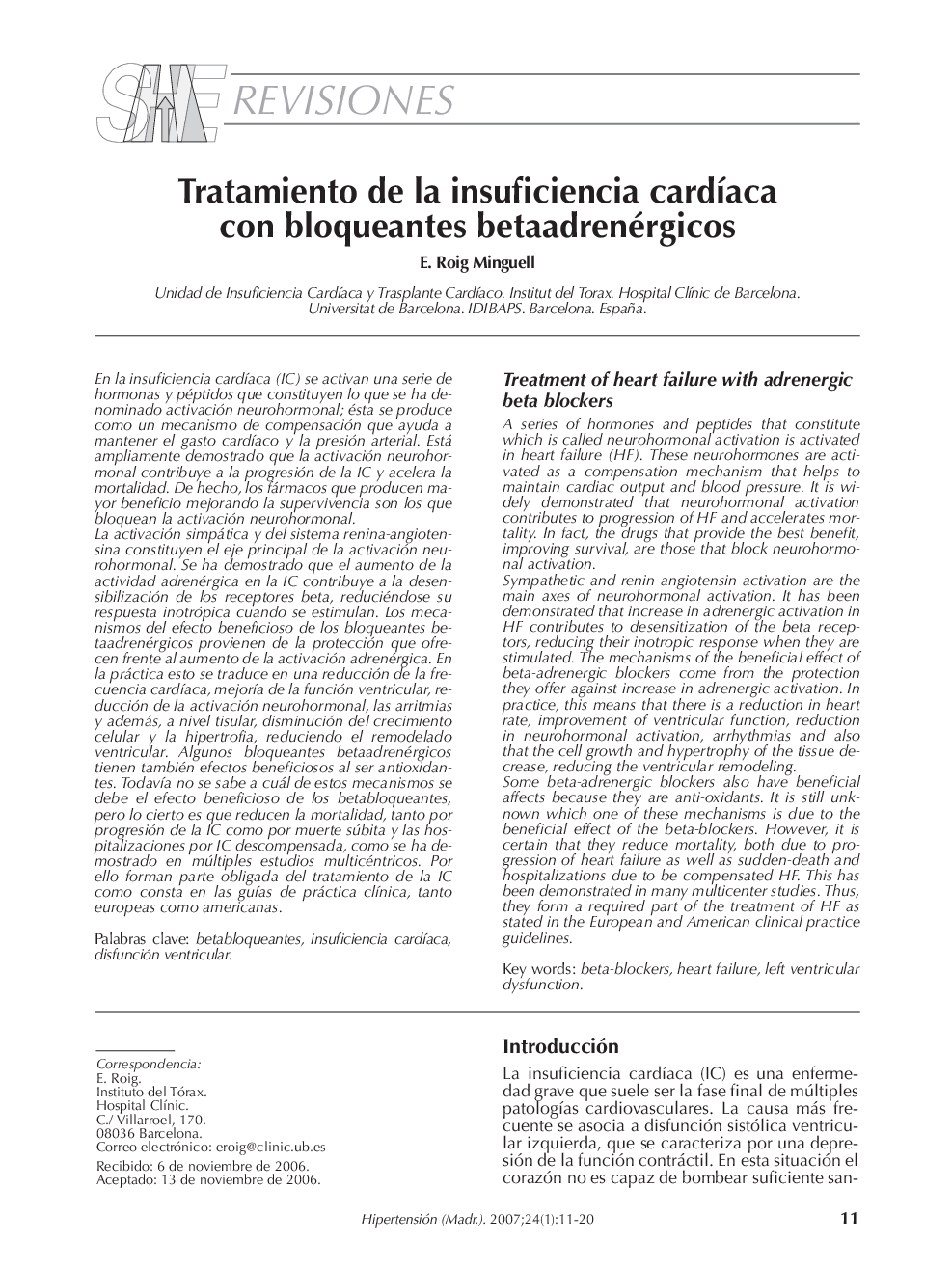| Article ID | Journal | Published Year | Pages | File Type |
|---|---|---|---|---|
| 2926129 | Hipertensión | 2007 | 10 Pages |
Abstract
Sympathetic and renin angiotensin activation are the main axes of neurohormonal activation. It has been demonstrated that increase in adrenergic activation in HF contributes to desensitization of the beta receptors, reducing their inotropic response when they are stimulated. The mechanisms of the beneficial effect of beta-adrenergic blockers come from the protection they offer against increase in adrenergic activation. In practice, this means that there is a reduction in heart rate, improvement of ventricular function, reduction in neurohormonal activation, arrhythmias and also that the cell growth and hypertrophy of the tissue decrease, reducing the ventricular remodeling. Some beta-adrenergic blockers also have beneficial affects because they are anti-oxidants. It is still unknown which one of these mechanisms is due to the beneficial effect of the beta-blockers. However, it is certain that they reduce mortality, both due to progression of heart failure as well as sudden-death and hospitalizations due to be compensated HF. This has been demonstrated in many multicenter studies. Thus, they form a required part of the treatment of HF as stated in the European and American clinical practice guidelines.
Keywords
Related Topics
Health Sciences
Medicine and Dentistry
Cardiology and Cardiovascular Medicine
Authors
E. Roig Minguell,
